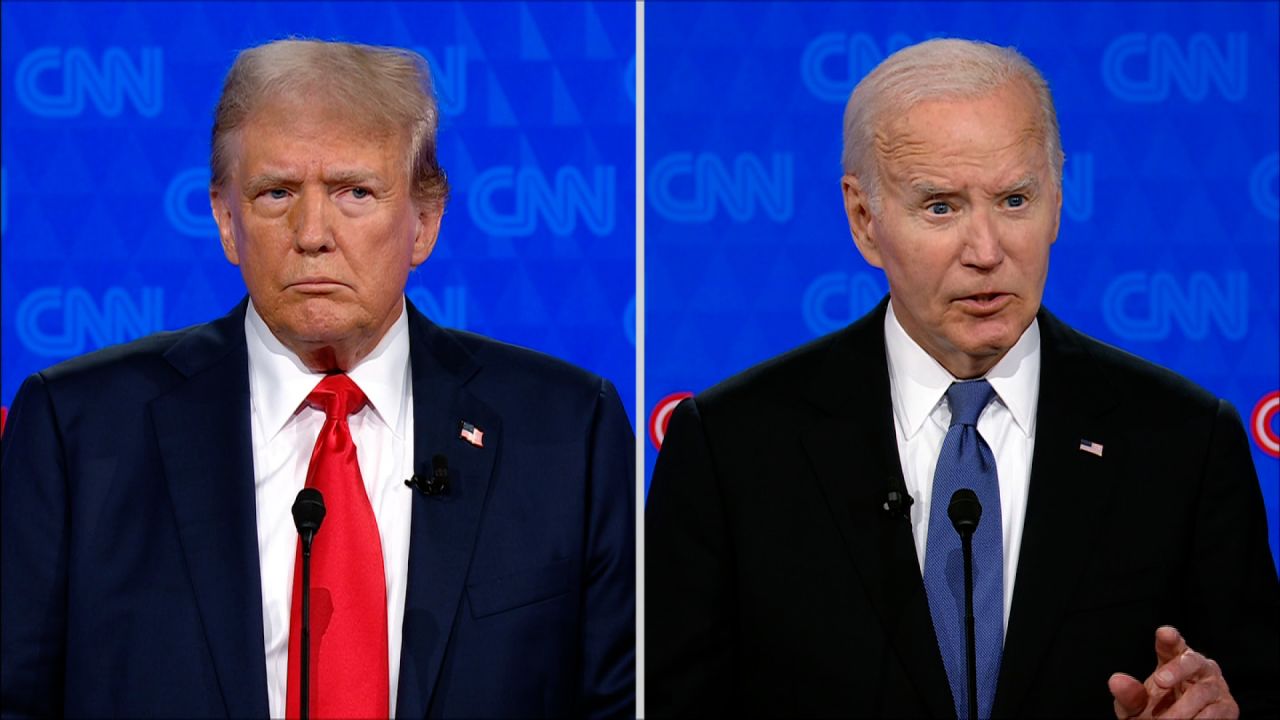The 2024 Presidential Debate Was the Worst in History
The presidential debate between former President Donald Trump and President Joe Biden on June 27, 2024, has been widely regarded as the worst in U.S. history. This debate, marked by glaring displays of incoherence and dishonesty, has underscored a growing sense of disillusionment with the American political process. The event not only highlighted the vulnerabilities of the candidates but also raised serious concerns about the future direction of U.S. democracy.
Joe Biden: A Struggle with Age and Clarity
President Joe Biden, at 81 years old, appeared notably frail and disengaged during the debate. His performance was punctuated by frequent pauses, misstatements, and a general sense of confusion. At several points, Biden struggled to articulate his policies clearly, often stumbling over his words and losing his train of thought. His difficulty in responding to complex questions about the economy, foreign policy, and social issues was palpable, leading many viewers to question his cognitive acuity.
For example, when asked about his administration’s strategy for handling the ongoing economic challenges, Biden’s response was rambling and lacked substance. He frequently referred to past achievements rather than offering concrete plans for the future. His inability to stay on message and provide coherent answers only fueled concerns about his capacity to lead effectively in a time of global uncertainty.
Biden’s age and apparent cognitive decline were painfully evident during the debate. In moments where he attempted to confront Trump, his responses lacked the sharpness and vigor required to counter his opponent’s aggressive style. This left many viewers wondering whether Biden’s age and mental fitness were impairing his ability to effectively govern and debate.
Donald Trump: A Torrent of Falsehoods
On the other side of the stage, Donald Trump exhibited his characteristic bravado, but his statements were riddled with falsehoods and exaggerations. Fact-checkers had a field day as Trump repeated unfounded claims and presented misleading statistics. His approach to the debate was less about presenting coherent policy proposals and more about dominating the conversation through sheer volume and bluster.
Trump’s assertions about the economy were particularly egregious. He falsely claimed that the U.S. had achieved unprecedented economic growth under his previous administration, despite clear evidence to the contrary. He also misrepresented the state of the healthcare system and downplayed the ongoing challenges related to the COVID-19 pandemic. These distortions were not only misleading but also dangerous, as they painted a misleading picture of reality that could misinform voters.
Additionally, Trump’s aggressive tactics and frequent interruptions undermined any semblance of a productive debate. His relentless attacks on Biden, often based on false premises, created a chaotic environment that left little room for substantive discussion. Trump’s disregard for the truth and his combative demeanor further eroded the quality of the debate, turning it into a spectacle rather than a meaningful exchange of ideas.
Historical Comparisons: A New Low
To appreciate the magnitude of the June 27 debate’s failure, it is instructive to compare it with past debates in U.S. history. Presidential debates have often served as crucial moments for candidates to articulate their visions and contrast their policies. However, the 2024 debate stands out as particularly detrimental.
One notable comparison is the 1960 debate between John F. Kennedy and Richard Nixon, the first-ever televised presidential debate. Despite Nixon’s poor visual appearance due to illness, the debate was substantive and focused on policy issues. Both candidates engaged in a meaningful exchange, showcasing their knowledge and leadership qualities.
Similarly, the 1980 debate between Ronald Reagan and Jimmy Carter, while contentious, offered clear insights into each candidate’s platform. Reagan’s famous line, “Are you better off than you were four years ago?” became a defining moment that resonated with voters. The debate allowed the American public to evaluate the candidates on their merits and make informed decisions.
In contrast, the June 27, 2024, debate lacked the clarity and decorum of its predecessors. Rather than informing the electorate, it served to further polarize and confuse. The absence of substantive discussion and the prevalence of personal attacks and falsehoods set a new low for presidential debates in the United States.
Moving Forward: Navigating a Divisive Political Landscape
The dismal state of the 2024 presidential debate raises critical questions about the future of American democracy. With both candidates demonstrating significant weaknesses, the electorate is faced with a challenging decision. The debate’s failures underscore the urgent need for a more effective and informed political discourse.
For Joe Biden, the path forward involves addressing concerns about his age and cognitive abilities. His administration must work to communicate a clear and coherent vision for the future, emphasizing policy achievements and plans in a manner that reassures the public. Additionally, Biden’s team needs to prepare him more rigorously for public appearances and debates, ensuring that he can articulate his positions effectively.
Donald Trump, on the other hand, must confront the issue of credibility. His penchant for falsehoods and exaggerations undermines his ability to engage in honest and productive discussions. To regain trust, Trump needs to shift from bombastic rhetoric to fact-based arguments and present realistic solutions to the nation’s challenges. This transition is crucial if he hopes to appeal to a broader segment of the electorate.
For the American public, the 2024 debate serves as a stark reminder of the importance of informed and critical engagement with the political process. Voters must prioritize substance over style and demand higher standards of conduct from their leaders. Media organizations and debate moderators also bear responsibility for ensuring that future debates are structured to facilitate meaningful discourse rather than devolving into chaotic spectacles.
